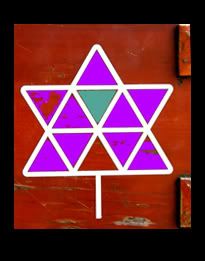DJ Cheb i Sabbah


Cheb i Sabbah—a.k.a. dj Cheb i Sabbah grew up Jewish of Berber (Amazigh) descent in Constantine, Algeria, so the idea of mixing cultures was, you might say, in his blood. He moved to Paris in the 1960s, and, more or less by accident, became a DJ. By the late 1980s, he was pushing boundaries on the dance floor, seeking ways to work African, Asian, and Arabic music into the mix. Then, as the “world music” movement unfolded, Cheb i Sabbah took the inspired step of recording traditional and classical musicians himself and using those tracks to create bold, new creations—effectively, music “composed” by a DJ. With four landmark recordings under his belt, Sabbah recently returned to his native North Africa to gather the raw material for his most ambitious project to date, La Kahena, a set of eight pieces created from music by eight different acts, all featuring women singers. Sabbah remains a DJ at heart, but he is also something more—one of the most innovative forces in contemporary dance music today.
“As a DJ, you have ears,” says Sabbah. “This is your instrument; you know what you want to hear on the dance floor. A lot of genuine world music artists are fantastic musicians, composers, vocalists, but they don't know how to master and mix for the dance floor. They are not acquainted with the technicalities of how to construct songs that are DJ-friendly with breaks or stops, so you can go from here to there. With this insight and understanding, it only made sense to forge forward with producing world music for the dance floors, founding a new approach to the process, bringing our two worlds together. It's only in the last ten years that DJs have become producers, and you could say that we compose music.” The possibilities in this new realm are endless, and Sabbah makes no secret of the thrill that freedom gives him. “Musicians don't like to hear this,” he says, “but DJs have no limitations. If you take a soukous musician or a blues musician, they are very good at what they do, but if you say, ‘Oh, let's play some Balinese music now,’ they say, ‘I don't know about this.’ As a DJ, in a split-second, I can go from here to wherever the next place is.”
As DJ culture evolved, Sabbah increasingly charted his own course, until the source material he wanted to work with simply couldn’t be found on vinyl. The scratching, spinning and “beat matching” that define the modern DJ’s art are not part of his act at all, so Sabbah is used to having kids watching him pop CDs in and out of players and saying, "Man, this guy isn't doing anything.” But Sabbah has made countless converts along the way. During a recent performance at Seattle’s annual Bumbershoot Festival, he was pleased to notice “hip hop kids” recording the concert with their cell phones. “At that point, it doesn't matter if you're spinning vinyl or not,” he says, “Because the beats are there.”

No comments:
Post a Comment